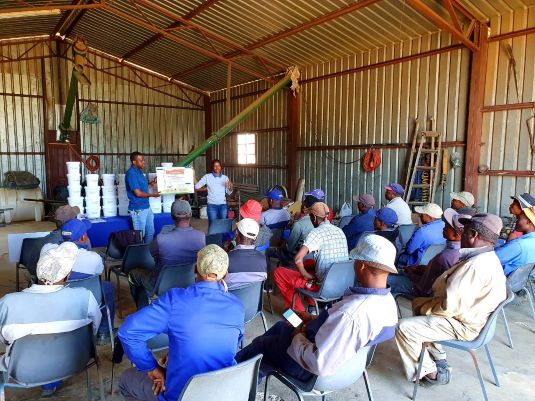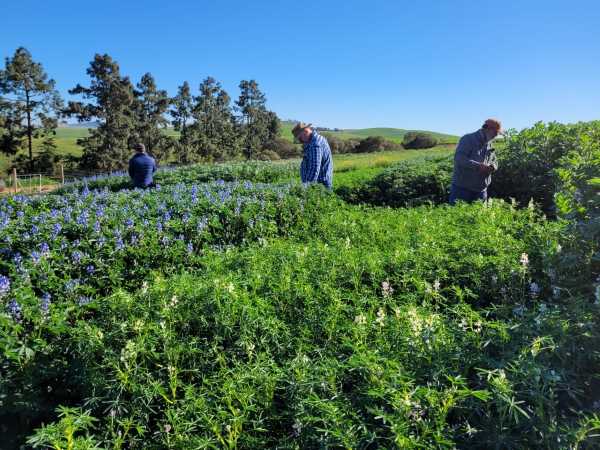Growers rightly say that the most expensive spray application is the second – or wrong – one. Spray clinics jointly presented by InteliGro and WinField United, now help ensure that the first application is the best, and the only one.
Without crop protection products (chemical or biological) it would be impossible to produce sufficient food for the increasing global population. However, this valuable input has to be used safely and responsibly in the long-term interest of the environment, humans and animals, in addition to preventing the development of resistance against specific products. The emphasis is therefore on using the right product, for the right reason at the right time.
“Agrochemicals are becoming more expensive, pests develop resistance against products and new compounds are increasingly rare,” says Duard Bruwer from WinField United. “Against this backdrop, WinField United and InteliGro joined forces at the start of the summer grains season to present a series of spray clinics for growers and spray operators.”
To date, 10 spray clinics have taken place in the Free State, Mpumalanga and Northern Cape. More are in the planning pipeline, given the interest from growers and the overwhelmingly positive feedback.
Twofold approach
According to Janet Lawless from InteliGro, the spray clinics stand on two legs, namely the responsible use of agrochemicals and effective application practices. “Underpinning both is the responsibility we accept for safeguarding the environment and the wellbeing of humans and animals,” she says. “This stewardship starts on the farm, as does everything else we do.”
Given this dual focus, the purpose of the spray clinics is to give crop protection products the best possible chance at being used cost effectively and with the best possible results.
The part of the workshop that deals with the responsible use of products, includes topics such as how to accurately read and interpret the product label, why it is important to closely adhere to the safety measures and how to dispose of empty containers.
Read also: novel crop protection compounds through new Testing4Ag program
“Occasionally we find that spray operators do not fully understand the danger involved in the handling of agrochemical products,” says Bruwer. The correct disposal of empty containers cannot be emphasised enough. Under no circumstances may empty agrochemical containers be used for any other purposes. They must, instead, be handled according to the Croplife SA guidelines and delivered to an approved collection point where accredited organisations can collect them for recycling. All this information is available on the Croplife website.
“We also go into some detail about how harmful it can be to the environment, humans and animals if agrochemical products are not handled correctly.,” adds Bruwer.
Effective application is discussed under three headings:
- In the tank focuses on the correct product mixing sequence and the importance of water quality.
- In the air covers aspects such as optimal droplet size to prevent evaporation or run-off, nozzle management, calibration of equipment and the impact of environmental conditions – wind, temperature and humidity – on application.
- On the target explains why certain weeds, fungi and insects are difficult to control, and how adjuvants can be used to bypass pests’ defence mechanisms.
The short, practical presentations, done in the audience’s home language, are followed by demonstrations that explain the principles and practices that were discussed. Each attendee also receives a bucket with gloves, a mask and safety goggles – everything a person needs to safely handle agrochemical products.
In conclusion, Lawless highlights the partnership’s ambition to reach every farmer in the country with the spray clinics. “The message that efficacy starts on the farm and that the basics have to be in place, is extremely important.”










[…] Read also: Training ensures effective crop protection […]
Comments are closed.